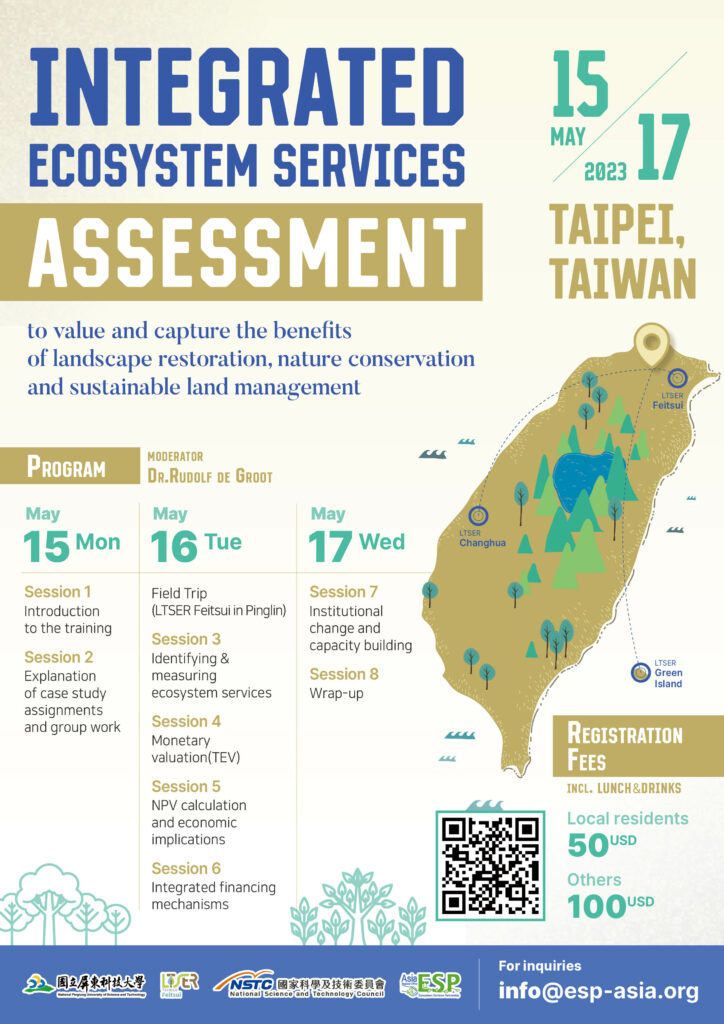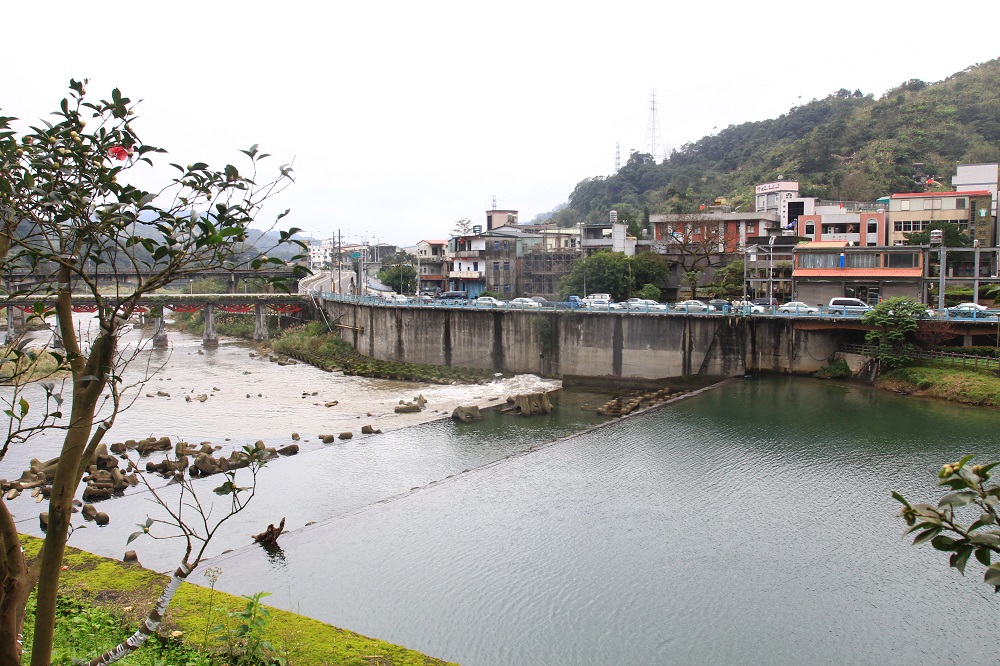The ESP Asia Regional Office is preparing a training on Integrated Ecosystem Services Assessment to value and capture the benefits of landscape restoration, nature conservation and sustainable land management.
Moderated by ESP chair Rudolf de Groot and ESP Asia executive committee member Namue Lee, the training will take place on 15-17 May 2023 in Taipei, Taiwan, and will be hosted by Dr. Herlin Chien the National Pingtung University of Science and Technology/ LTSER Pinglin, Taiwan.
You can download the detailed program here. Keep an eye on the event webpage for further updates.
Register for the training. Registration deadline: 1 April 2023.
The training will be held at the National Taiwan University in Taipei, Taiwan.
Moderator:
Dolf de Groot, Foundation for Sustainable Development/ Chair of Ecosystem Services Partnership (ESP)
Facilitators:
Herlin Chien, Associate Professor, National Pingtung University of Science and Technology
Jr-Chuan Huang, Professor, National Taiwan University
Namue Lee, Director, ESP Asia
We have assembled a lsit of recommendations of hotels in the surrounding area: Download here.
Please note that participants are required to cover their own travel and accommodation costs.
An official letter of invitation from Taiwan can be provided to international particpants as visa application material (if necessary, a tourist visa is always recommended).
All participants will receive a certificate from ESP Asia upon completion of the training.


